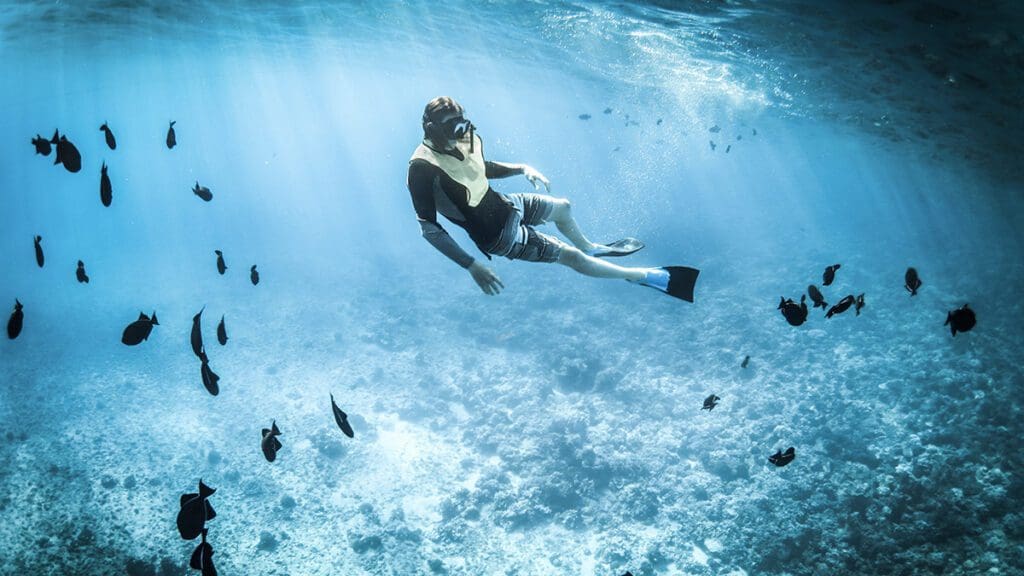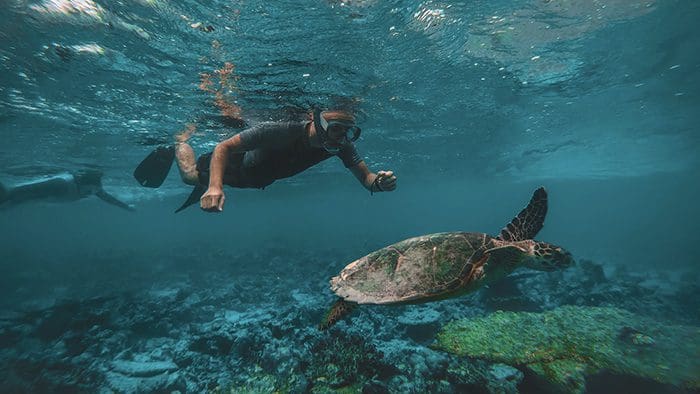
Snorkeling offers a winning combination of leisure, exercise, and closeness to nature. Like any water sport, it has its dangerous side, but that doesn’t mean you should be nervous about trying it. Follow these nine simple tips and you’ll be able to enjoy the maximum snorkeling experience with the minimum risk. If you do sustain an injury whilst out snorkeling, say you’re hit by a boat or the equipment that you’re equipped with is faulty, remember you can always talk to a personal injury attorney. Doug Beam, for example, is an attorney that might be able to help with legal action if you do get injured. Follow these 9 tips and you’ll be able to enjoy snorkeling in safety.
1) Don’t Go In Alone
Snorkeling is much safer for a beginner than scuba diving, but it still makes sense to take a snorkel buddy along with you. Going it alone increases all the other risks exponentially while having a friend to look out for you – and vice versa – is an excellent safety net.
2) Prepare Properly
Snorkeling is easy to learn, but you should still prepare carefully before entering the open ocean for the first time. Learn how to use your gear in all conditions, including how to empty it of water, and make sure you know exactly what to do in an emergency.
3) Don’t Snorkel after Meals
The old tales of swimming on a full stomach causing cramps can be a little exaggerated. But nonetheless, avoid snorkeling after a heavy meal. It’s natural that you’ll feel less alert and a little more sluggish, and in an ocean environment you should always be at your peak.
4) Avoid Alcohol
Never, ever, think of snorkeling after drinking alcohol, no matter how little. Even one drink can dull your reactions dangerously, while also instilling a false sense of confidence.

5) Stay Hydrated
It’s important to stay properly hydrated during a day’s snorkeling. It’s surprising how dehydrated you can become after an hour or two in salt water, especially if you have hot sun on your back.
6) Cover Up
It’s important to protect your skin from the sun, even when underwater. The sun’s rays can be magnified in shallow water, meaning the UV can actually be pretty strong. Floating face down on a sunny day can also cause sunburn which you won’t even notice until you leave the cooling effects of the water. Wear a full wetsuit that covers you from neck to ankle – this will also protect you from scrapes, bumps, and nibbles from curious fish. You might be tempted to wear sunscreen, but most sunscreens are poisonous to marine life and can kill coral, so go without until you’re back on dry land.
7) Look But Don’t Touch
Don’t be tempted to touch marine life or other underwater items unless you’re 100 percent certain of their safety. Many harmless looking fish can be lethally poisonous, and what looks like a harmless stone may in fact be a cleverly camouflaged killer.
And in any case, it’s always more ethical to leave the environment as undisturbed as possible.
8) Keep Your Bearings
When you’re engrossed in the undersea world, it’s easy to drift too far from shore, especially if you’re not paying attention to currents and winds. Remember to check your position regularly, and keep well within comfortable swimming distance of the beach. Don’t forget about the effect of tides either – swimming back to shore can be a completely different proposition if you’re going against the flow.
9) Check the Weather
Lastly, check the weather forecast before starting any snorkeling session. Ocean conditions can change extremely quickly, turning a gentle swell into heavy waves. Don’t get caught out just because the sun’s shining when you set off.
A day spent snorkeling in good conditions is a huge amount of fun. But don’t ever become complacent. If you don’t treat it with respect, the ocean will always be a dangerous place to be.




